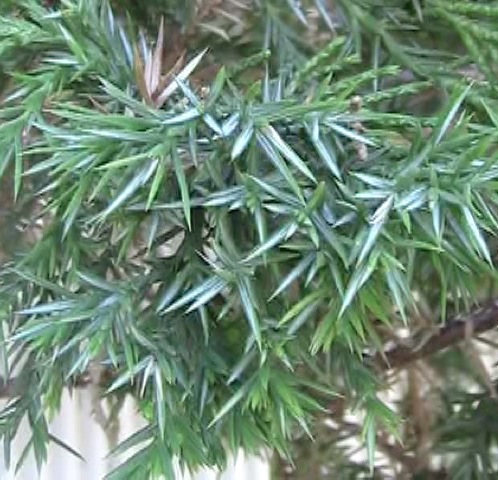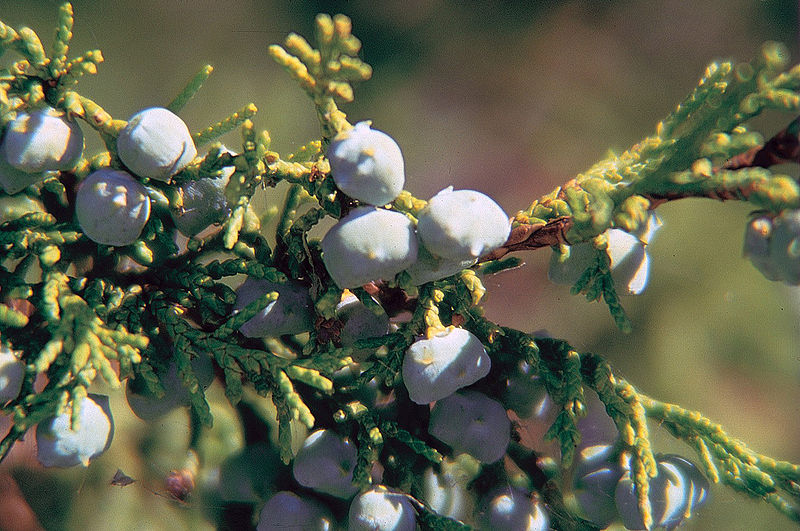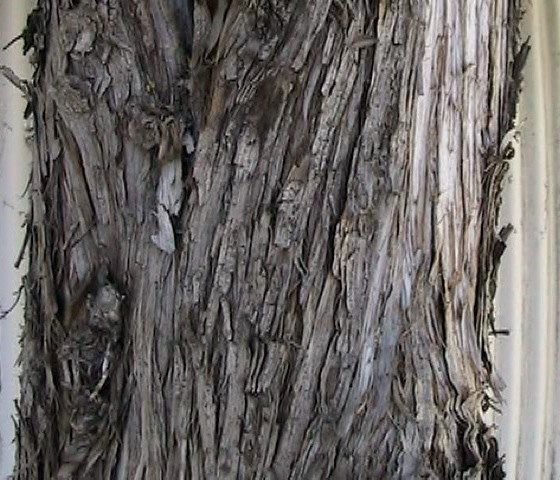| PSC 2620: Woody Trees and Shrub | Course Home | Week 12 |
Juniperus scopulorum - Rocky Mountain Juniper
Plant Viewer
 |
 |
| The new foliage is needle-like. | The mature foliage is scale-like and hugs the stem closely. It can be more of a green color than the new foliage. |
 |
 |
| The fruit is composed of small berry-like scale cones. Image: D.E. Herman, USDA | The gray-brown bark exfoliates in strips. |
Plant Description
Juniperus scopulorum, or Rocky Mountain Juniper, is a native coniferous evergreen tree. It is a famously rugged and tolerant of poor soils and drought conditions. It grows 30-40 high and 3-15 feet wide with a narrowly pyramidal form. It can be a single stem tree, but regularly has multiple stems. The bark is a gray-brown color and exfoliate in strips. It is somewhat ornamental when visible.
The foliage is light green to gray-green in color. Young foliage is needle-like and arranged oppositely or in whorls. The mature foliage is scale-like in shape and tightly pressed together. The small berry-like cones are dark blue in color and have slight sheen.
Landscape Use
The regular species is most suited to use in a naturalized setting. Several cultivars are good to use as a hedge or foundation plantings.
Points of Interest
Cankers can be problematic. The Jardine Juniper, a specimen of Rocky Mountain Juniper over 1,500 years old, can be found in Logan Canyon.
Notable Cultivars
Skyrocket
This cultivar has a good pyramidal form with silvery gray foliage. It grows 10-15 feet tall and 3-5 feet wide.
